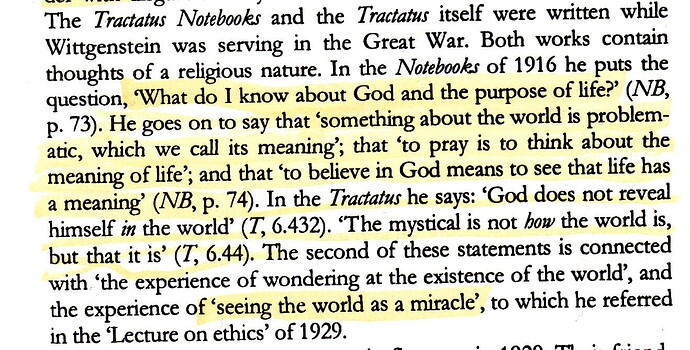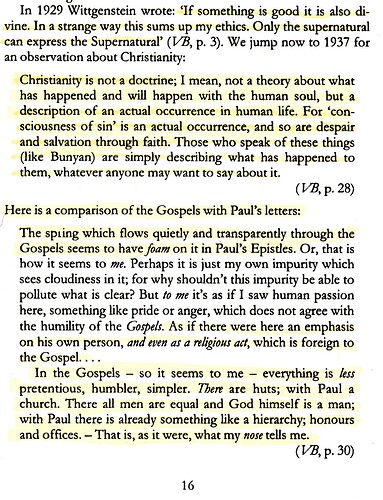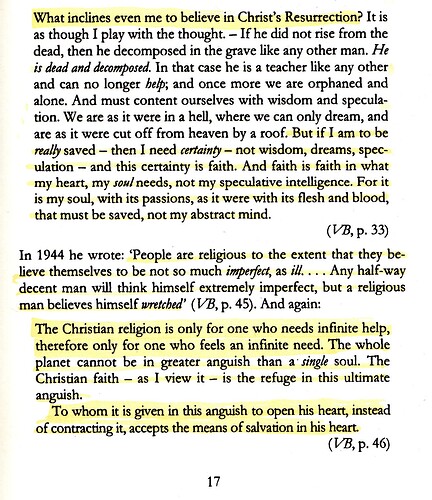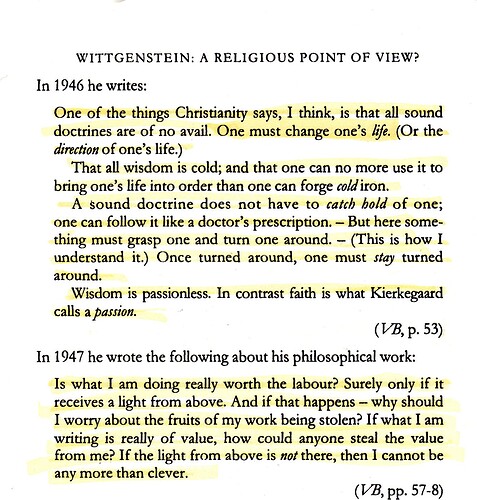I spent most of my Forum time over the last few days reviewing this thread and taking notes on it, or replying to long neglected posts. Some of you have taken a good deal of time to read posts, put together thoughtful replies, read articles and watch videos people have shared. Thanks! That adds value to this discussion.
Below is a rough summary of the main points people made, although I’m sure I missed some. I wrote this for myself to help process what had been said. I’ll post it in case it’s of value to someone else, too.
I liked this quote from Kai:
It feels a bit annoying that I do not yet have satisfying answers, I can only ask questions. Makes me think if finding answers is one of the purposes of life…
–knor (kai)
A number of objective sources of life’s meaning were suggested, most of which included purpose given by God in creation, found in a relationship with God through Jesus Christ, and in being conformed to the likeness of Jesus.
However, life was also described as ultimately meaningless or purposeless, and finally as suffering.
On the other hand, many proposed a variety of subjective concepts related to meaning of life. Some sources are subjectively qualitative but nevertheless fairly specific concepts, such as relationships and productivity. Others were far more open ended. Depending on our personal predilections, we create our own meaning in what our attention is drawn to, what gives us a sense of place in the world, or in ways we are not always aware of.
Additionally, meaning or purpose was also suggested to be fluid or dependent, influenced by changing life circumstances, such as age, ability/disability, situation, etc.
It was noted that our views of the meaning of life can have a variety of implications. For example, if meaning is bound up in relationships, then we might have an ethical reponsibility to maintain and foster good relationships as well as seek to include a wider variety of people in our lives, particularly those who may find their own web of relationships torn. Other implications were not yet understood. For example, how can we understand our unique purpose, assuming we have one? How can we understand the purpose of the lives of people whose lives didn’t end up well, or whom life has treated ill? Some asked how we can understand meaning in relationship to people with various disabilities. It was also suggested that saying meaning of life is purely subjective is essentially saying there is no meaning. While seemingly good for putting an end to disagreement about sources of meaning, it ultimately unravels our social fabric. And finally, if we decide for ourselves what we mean by meaning, it requires a personal investment of deciding what it means and how best to describe it from within our experience.
The question, “What is the meaning of life?” was put to scrutiny. It was put forth that the meaning of meaing is irrelevant when we cannot stop loving; therefore the question is moot. There is too much pressure to insist on purpose and meaning in the first place. Talking about meaning in terms of large ultimates is pointless; we need to keep our focus more human-sized.
I don’t think we laid any new philosophical or theological groundwork, but it has been a good discussion so far.





